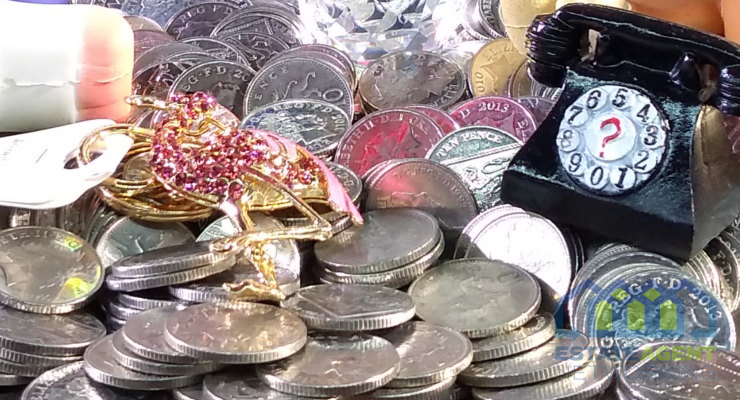Bitcoin: The Future of Property or Just a PR Stunt?
A Notting Hill property worth £17m hit headlines last year as the first ever home to be given a Bitcoin-only price tag. Does this landmark sale spell the beginning of a new era in property transactions, or is it simply another gimmick?
Maybe we should start from the beginning.
What is Bitcoin?
Thanks to its value skyrocketing at the end of 2017, everyone and their grandmother has at least heard the term “Bitcoin”. Without going into a lot of technical detail, Bitcoin is a digital currency that isn’t controlled by a central bank or administrator. Instead of being minted like fresh money, new Bitcoin is mined by computers and its users – of which there are an estimated 2.9million to 5.8million – can complete online transactions in complete anonymity.
While it has been associated with illicit activity (including the 2017 WannaCry ransomware attack on the NHS), as its popularity increases more major firms are accepting it as a form of payment, including PayPal and Microsoft.
So, what does this have to do with property?
Bitcoin’s recent surge has left some people very, very rich. At its peak in December, 1 Bitcoin was worth approximately £14,592, although its volatility as a currency meant that its value has plummeted back down to around £5184 at the time of writing. If you owned a single Bitcoin on December 5th, by the morning of December 7th you’d have an extra £3534 in your digital wallet. Early investors – we’re talking those who took an educated gamble back in 2012 or so – are seeing their cryptocurrency value increase by over 4,000%.
The recent frenzy has convinced some investors that it’s time to get out while the going is good and put their money into a more reliable asset. If you’ve become an overnight millionaire, where do you go to spend your cash? London’s West End, of course.
The home that sold for 5,000 Bitcoin
The six-floor mansion on Portobello Road was valued at £17million, but the vendors were only accepting payment in Bitcoin. Motivated by the belief that cryptocurrency is the way forward, the sale was intended to act as an example of how efficiently a property transaction can proceed without the red-tape of banks.
Would it catch on to other sales in the area? We spoke to a team of Notting Hill property experts, who have been representing local property transactions with international clientele for over ten years. They explained that the major hurdle with Bitcoin is its volatility. “We all saw the huge fluctuations in Bitcoin’s value through December and January; now consider the fact that average property sales in London take eight weeks to complete”. When it was listed back in October, the house on Portobello Road was worth 5,050 Bitcoin. If it were re-listed today, it would only be worth around 3,200 Bitcoin. That difference is about £9.7million – it’s a risk that very few people will be willing to take.
Even if the sale can be processed more quickly due to no buying chain and less regulation from the bank, a purchase of this magnitude can’t happen overnight, which is all it takes for Bitcoin to drastically change in value. Its anonymity means that there is a very real risk of Bitcoin being used to launder money, so you’ll need an expert team to verify the sale before committing.
Are Bitcoin sales purely a gimmick?
Well, not entirely. There’s no denying that advertising a house with a Bitcoin-only price tag is excellent publicity. When it first went on sale, most of the interest in the Portobello Road property was coming from young tech entrepreneurs from Asia. Even though the London market is having a bit of a wobble, the house attracted a huge number of viewings, presumably from people calculating whether they could make a lucrative deal thanks to the unusual buying option.
In fact, if you’re trying to target this demographic – the swathes of super-rich 30-somethings with cash to play with – it’s the unpredictability of Bitcoin that has them flocking. After all, a house that’s listed for a fixed Bitcoin price could be snapped up for well below market value if the buyer has a little patience.
Conversely, with the uncertainty of Brexit and the looming possibility of London’s property bubble bursting, homeowners may feel like now is the time to swap into a more flexible asset. If they aren’t relying on a house sale to fund a new home (many in this area of London aren’t) and have the financial means to ride out a dip in Bitcoin value, it may well be the time to take the plunge and buy elsewhere.
It’s worth mentioning that London isn’t the only place in the country offering homes in exchange for Bitcoin, and nor is Bitcoin the only cryptocurrency. While it enjoys its time in the spotlight, other currencies like Litecoin, Ripple and Ethereum offer all of the benefits and just a fraction of the volatility. While the home in Notting Hill might have been a PR move, it’s drawn attention to a market that may be on the cusp of bigger things.









